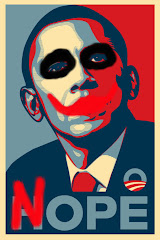Almost no one, Republicans and conservatives included, has a problem with making health care available to the uninsured.
But with each passing day, it appears that "Health Care Reform" is a pretext not for covering the uninsured, but increasing the government's reach over one-fifth of the economy, and into decisions that were until now, between a doctor and a patient (or a doctor, a patient and an HMO).
What Republicans, conservatives, Blue Dog Democrats and evidently, now a majority of the American People have a problem with is the government's total takeover of the nation's health care system, higher taxes, and increased spending. This is particularly true given that the economy shows no signs of immediate improvement.
What can be done? It wold be easy enough to provide vouchers for the poor so that they could simply just purchase the insurance (although this would still cost money, but not as much as the current proposal before Congress).
Americans enjoy the world's best health care, the problems are costs and access. To increase access, insurance companies should be allowed to cross state lines to sell policies to increase competition (and lower prices). Congress can also allow insurers to write policies that do not cover every conceivable malady. Is it better to go uninsured because you cannot afford a "gold-plated" policy that is required to cover, for example, HIV infection or precription costs for Viagra? Or would it be better to forego these things (particularly if you aren't at risk for HIV or think your plan shouldn't pay for Viagra should you need it)?
Further, any effort to artifically control costs (i.e., price controls), would result in either a healthcare black market, or inability to get healthcare because it would become scarce. Think
1970s era gas lines.
Agressive efforts to replace current employer's health care plans with health savings accounts would likely help control costs. With health savings accounts, employers take the same money that they would spend for insurance premiums, and use it for: (1) a less expensive major medical plan to cover only catistrophic costs; and (2) a savings account (for the remainder) that is used to pay for expenses not covered by the major medical insurance policy.
Because the savings accounts are an asset that each person keeps should they remain healthy, there is an incentive for each person to be the guardian of his own costs. If an unnecessary trip to the emergency room or expensive diagnostic procedure would cause an account withdrawal, then people would be more careful not to purchase these services unless truly necessary. This of course, would reduce costs and further increase access.
This of course is not an exhaustive list of alternative proposals to Obamacare. But it is clear that insuring the uninsured is not the real goal, which is make the government the sole insurer and increase the public's dependence on the Democrats. Who you gonna call when there are no longer any insurers to provide affordable coverage?
Subscribe to:
Post Comments (Atom)











No comments:
Post a Comment